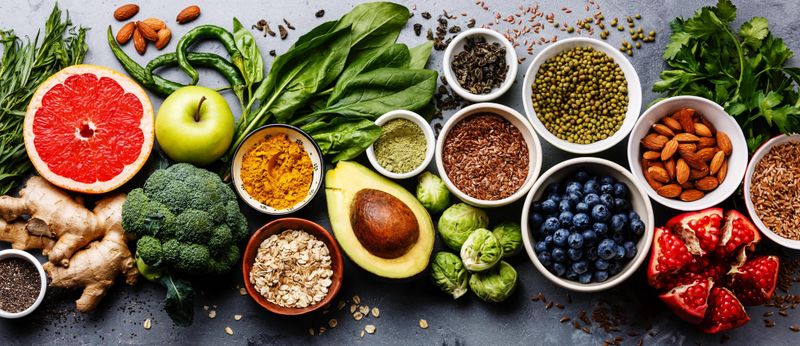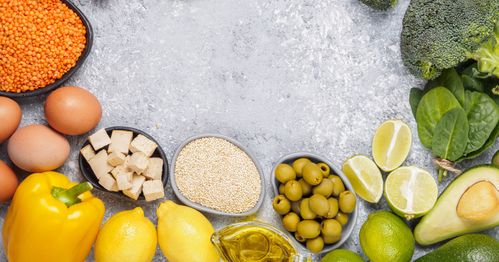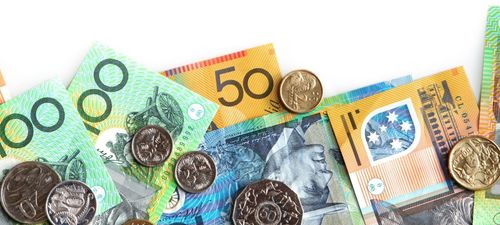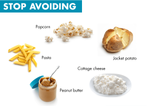Plant-based diets: good for your health, your wallet, and the planet
by Guest Author,
- August 31, 2021
- Leave a comment

Emma Kwok, student dietitian at Curtin University (2020)
A growing number of Aussies are trying to reduce their intake of animal foods, and there are a lot of good reasons why. Moving to a more plant-based diet can improve your health, save you money, and help save the planet.
Lettuce tell you all about it!
Is plant-based eating just another way of saying vegan?
While it’s true that vegetarian and vegan diets are considered plant-based, plant-based eating doesn’t necessarily mean cutting out all animal foods.
You can still eat some animal products; the aim is to focus on eating more plants and less animal products.
Wherever you decide to sit on the plant-based eating scale is totally up to you. You’ll reap the benefits as long as you’re including more whole plant foods in your diet every day.
What are plant-based foods?
Plant-based foods are any foods derived from plants. However, when it comes to the health of people and the planet, minimally processed plant foods are the ones that will have the biggest positive impact, including;
- Vegetables
- Fruits
- Wholegrains (e.g. brown rice, oats, barley, grainy bread)
- Nuts and seeds
- Legumes (e.g. beans, chickpeas, lentils)

Cheese flavoured corn twists, coconut oil based ‘plant’ cheeses, and processed fruit bars don’t count when we are talking about the benefits of a plant-based diet.
Now that we’ve got the nitty gritty stuff out the way, let’s dive into why a plant-based diet has been coined a golden diet for the planet, health and your bank account.
How is it good for the planet?
Eating more plant-based foods means eating less animal foods, which can help the planet in a bunch of ways.
- It cuts your carbon footprint - Animal agriculture is responsible for a lot of the greenhouse gas emissions produced worldwide. Producing 1kg of beef creates approximately 100kg of greenhouse gases, while plant-based proteins create only a fraction of this. For every one kilo of plant food produced, the amount of greenhouse gases created is 2kg for tofu, 1kg for peas, and 0.4kg for nuts. By eating fewer animal foods, we can drastically reduce our carbon footprint.
- It can save on water – That same 1kg of beef takes 15,000 L of water to produce! In comparison, it only takes around 4000 L to produce 1kg of beans or lentils – so swapping out some of your meat-based meals for vegetarian alternatives can help reduce water usage.
- It saves food resources – Eating more plants means less of our crop resources need to go towards feeding livestock. This means that the extra crop resources saved can be fed directly to us instead.
How is it good for my health?
Plant foods are packed with vitamins and minerals and tend to have more fibre which promotes the growth of good bacteria in our gut. Fibre provides fuel for the trillions of good bacteria in our gut that keep the immune system strong, reduce inflammation, and produce nutrients that nourish body cells. Fibre also keeps you fuller for longer which is great for work or school, and helps us to avoid reaching for unhealthy snacks.
Research has shown that eating a more plant-based diet is linked to a range of health benefits including:
- Being in a healthy weight range
- Lower blood pressure and cholesterol levels
- Lower risk of heart disease
- Lower risk of type 2 diabetes
- Lower risk of dementia
- Lower risk of some cancers (e.g. bowel)
Including some lean or lower-fat animal products, like lean red meats, chicken, seafood, eggs and dairy, in your diet is a perfectly healthy choice. These foods contain many essential nutrients such as protein, iron, vitamin B12, zinc and calcium, which aren’t as easily absorbed from plant foods. The trick is to make them a smaller part of your meal, and make plant-based foods the star of the show.
How is it good for my bank account?
Three simple swaps to a more plant-based diet could help you save over $1000 per year! Here are a few examples:
- Swap out half of your Bolognese mince for 200g dried lentils (save $4.30)
- Swap two chicken breast in a stir-fry for 300g tofu (save $6.45)
- Swap 500g lamb in a curry for 2 cans of chickpeas (save $12.40)

The take-home
Eating a more plant-based diet has some pretty great benefits. Remember, you don’t have to completely overhaul your life and become vegan if that’s not what you want to do. There are plenty of easy ways to add in extra plant foods to your day, so find out which ones work for you (we’ve got heaps of ideas here). Every little bit you do will help benefit your health, the earth, and might just put some extra money in your pocket!







